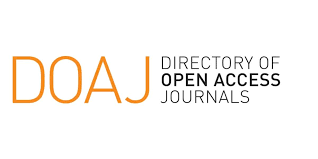Comparison of time use between young and middle-aged indigenous women and men by marital status and education level
DOI:
https://doi.org/10.36881/ma.v3i1.901Keywords:
indigenous peoples, time poverty, unpaid work, time use, gender inequalityAbstract
The objective of this research is to identify possible variations in the time that young and middle-aged indigenous men and women dedicate to activities such as household goods production, food preparation, house cleaning, laundry, and childcare, while contrasting these with their marital status and educational level. This is a quantitative study that employs data obtained from the 2021 National Time Use Survey, conducted by Mexico's National Institute of Statistics and Geography (INEGI), using generalized linear models. The results show that indigenous women, compared to indigenous men, experience greater time poverty. Women who reported being married or in common-law relationships devote significantly more time to tasks such as collecting firewood, carrying water, making tortillas, preparing food, cleaning the house, and caring for children. In contrast, men spend less time on these activities, revealing a stark inequality in the distribution of domestic and labor responsibilities within indigenous communities. The study concludes that it is necessary to raise awareness of unpaid work in indigenous communities to highlight the real challenges faced by women and girls, who suffer from time poverty, making it more difficult for them to access other areas that would enable their personal growth.
Downloads
References
Adeyeye, O., Fabusoro, E., Sodiya, C. I., & Fapojuwo, O. E. (2021). Gender differences in time-poverty among rural households in Southwest Nigeria. Journal of Agriculture and Rural Development in the Tropics and Subtropics (JARTS), 122(2), 193-205. https://kobra.uni-kassel.de/handle/123456789/13347
Anderson, E.S. (2010). Reducing Food Insecurity through Fresh Food Assistance and Agricultural Inputs to Vulnerable Households in the Gaza Strip”, ECHO/−ME/BUD/2010/01019. https://fscluster.org/sites/default/files/documents/care_wb_csi_technical_report.pdf
Bain, C., Ransom, E., & Halimatusa'diyah, I. (2018). Weak winners’ of Women's empowerment: The gendered effects of dairy livestock assets on time poverty in Uganda. Journal of Rural Studies, 61, 100-109. https://doi.org/10.1016/j.jrurstud.2018.03.004
Bradshaw, S., Chant, S., & Linneker, B. (2019). Challenges and changes in gendered poverty: The feminization, de-feminization, and re-feminization of poverty in Latin America. Feminist Economics, 25(1), 119-144. https://doi.org/10.1080/13545701.2018.1529417
Carmichael, F., Darko, C. K., Daley, P., Duberley, J., Ercolani, M., Schwanen, T., & Wheatley, D. (2023). Time poverty and gender in urban sub‐Saharan Africa: Long working days and long commutes in Ghana's Greater Accra Metropolitan Area. Journal of International Development. https://doi.org/10.1002/jid.3817
Cerrato, J., & Cifre, E. (2018). Gender inequality in household chores and work-family conflict. Frontiers in psychology, 9. https://doi.org/10.3389/fpsyg.2018.01330
Changhong, N. I. E., Tong, C. H. E. N., Huangang, W. A. N. G., & Lei, W. A. N. G. (2020). Research on poverty alleviation of Chinese women in new era. Bulletin of Chinese Academy of Sciences (Chinese Version), 35(10), 1282-1289. https://bulletinofcas.researchcommons.org/journal/vol35/iss10/11/
Cholo, T. C., Peerlings, J., & Fleskens, L. (2020). Gendered climate change adaptation practices in fragmented farm fields of Gamo Highlands, Ethiopia. Climate and development, 12(4), 323-331. https://doi.org/10.1080/17565529.2019.1618234
Covarrubias, A. (2023). Gender and multidimensional poverty at the individual level in Mexico. Development Studies Research, 10(1), 2218577. https://doi.org/10.1080/21665095.2023.2218577
Dang, H. A. H., & Nguyen, C. V. (2021). Gender inequality during the COVID-19 pandemic: Income, expenditure, savings, and job loss. World Development, 140, https://doi.org/10.1016/j.worlddev.2020.105296
De Guzman, K., Stone, G., Yang, A. R., Schaffer, K. E., Lo, S., Kojok, R., & Kayser, G. L. (2023). Drinking water and the implications for gender equity and empowerment: A systematic review of qualitative and quantitative evidence. International Journal of Hygiene and Environmental Health, 247, 114044. https://doi.org/10.1016/j.ijheh.2022.114044
Dresen, E., DeVries, B., Herold, M., Verchot, L., & Müller, R. (2014). Fuelwood savings and carbon emission reductions by the use of improved cooking stoves in an Afromontane Forest, Ethiopia. Land, 3(3), 1137-1157. https://doi.org/10.3390/land3031137
Dugarova, E. (2020). Unpaid care work in times of the COVID-19 crisis: Gendered impacts, emerging evidence and promising policy responses. In UN Expert Group Meeting ‘Families in development: Assessing progress, challenges and emerging issues, Focus on modalities for IYF (Vol. 30).
Feng, C., Kang, Y., Li, J., & Zhu, X. (2023). The Early Rise of Female Consciousness and Long-Term Female Labor Force Participation. Journal of Economic Issues, 57(1), 123-152. https://doi.org/10.1080/00213624.2023.2154540
Giurge, L. M., Whillans, A. V., & West, C. (2020). Why time poverty matters for individuals, organisations and nations. Nature Human Behaviour, 4(10), 993-1003. https://doi.org/10.1038/s41562-020-0920-z
González-Padrón, S. K., Lerner, A. M., & Mazari-Hiriart, M. (2019). Improving water access and health through rainwater harvesting: perceptions of an indigenous community in Jalisco, Mexico. Sustainability, 11(18), 4884. https://doi.org/10.3390/su11184884
Habimana, O. (2017). Gender Differences in Time Allocation: Evidence from Rwanda. Working Paper No. 8, International Training Centre of the ILO, Turin, Italy. https://www.itcilo.org/sites/default/files/inline-files/habimana.pdf
Hanrahan, M., & Mercer, N. (2019). Gender and water insecurity in a subarctic Indigenous community. The Canadian Geographer/Le Géographe Canadien, 63(2), 211-224. https://doi.org/10.1111/cag.12508
Hartmann, H. (2020). The unhappy marriage of Marxism and feminism: Towards a more progressive union. In Feminist Theory Reader (pp. 131-140). Routledge.
Hoang, L. Y. (2023). Social reproduction and the division of labour. Inter-Asia Cultural Studies, 24(1), 143-158. https://doi.org/10.1080/14649373.2023.2156128
Hyde, E., Greene, M. E., & Darmstadt, G. L. (2020). Time poverty: Obstacle to women’s human rights, health and sustainable development. Journal of global health, 10(2). https://doi.org/10.7189/jogh.10.020313
Instituto Nacional de Estadística y Geografía (INEGI) (2021) Encuesta Nacional del Uso del Tiempo. https://www.inegi.org.mx/siscon/
Ibnouf, F. O. (2011). Challenges and possibilities for achieving household food security in the Western Sudan region: The role of female farmers. Food Security, 3, 215-231. https://doi.org/10.1007/s12571-011-0118-3
Ilkkaracan, I., Kim, K., Masterson, T., Memiş, E., & Zacharias, A. (2021). The impact of investing in social care on employment generation, time-, income-poverty by gender: A macro-micro policy simulation for Turkey. World Development, 144, 105476. https://doi.org/10.1016/j.worlddev.2021.105476
Jagoe, K., Rossanese, M., Charron, D., Rouse, J., Waweru, F., Waruguru, M., & Ipe, J. (2020). Sharing the burden: Shifts in family time use, agency and gender dynamics after introduction of new cookstoves in rural Kenya. Energy Research & Social Science, 64, 101413. https://doi.org/10.1016/j.erss.2019.101413
Kabeer, N. (2021). Poverty analysis through a gender lens. In The Essential Guide to Critical Development Studies (pp. 197-204). Routledge.
Khan, M. Y., Alvi, A. K., & Khan, M. R. (2018). Relationship among marital status, profession and poverty: a statistical exploration. Gomal University Journal of Research, 34(2), 44-51. http://www.gujr.com.pk/index.php/GUJR/article/view/229
Khanna, M., & Thomas, M. (2023) Gendered time poverty in three developing countries: An intra‐household analysis of children's time use. Journal of International Development. https://doi.org/10.1002/jid.3814
Koirala, S. (2023). Empowering Absence? Assessing the Impact of Transnational Male Out-Migration on Left behind Wives. Social Sciences, 12(2), 80. https://doi.org/10.3390/socsci12020080
Ma, X. (2020). Time poverty and maternal wellbeing in Japan. In Quality of life in Japan: Contemporary perspectives on happiness (pp. 107-130). Singapore: Springer Singapore. https://doi.org/10.1007/978-981-13-8910-8_5
Malakar, Y., & Day, R. (2020). Differences in firewood users’ and LPG users’ perceived relationships between cooking fuels and women’s multidimensional well-being in rural India. Nature Energy, 5(12), 1022-1031. https://doi.org/10.1038/s41560-020-00722-4
Martey, E., Etwire, P. M., Adusah-Poku, F., & Akoto, I. (2022). Off-farm work, cooking energy choice and time poverty in Ghana: an empirical analysis. Energy Policy, 163, 112853. https://doi.org/10.1016/j.enpol.2022.112853
Masterson, T., Antonopoulos, R., Pires, L. N., Rios-Avila, F., & Zacharias, A. (2022). Assessing the Impact of Childcare Expansion in Mexico: Time Use, Employment and Poverty. UNRISD.
Megasari, L. A., Mas' udah, S., & Febrianto, P. T. (2021). The Impact of the COVID-19 Pandemic and Work From Home Policy on Poor Communities and Women in Rural Area. Society, 9(2), 522-538. https://doi.org/10.33019/society.v9i2.285
Memis, E. & Antonopoulos, R. (2010). Unpaid Work, Poverty and Unemployment: A Gender Perspective from South Africa. In Unpaid Work and the Economy, edited by Rania Antonopoulos and Indira Hirway, 76-111. London: Springer.
Mitra, A. (2018). Poverty, Women, and Dignity: Reflecting on the Writings of Ashapurna Devi. Asia-Pacific Social Science Review, 17(3), 1-1. https://www.ejournals.ph/article.php?id=11997
Mugehera, L., & Parkes, A. (2020). Unlocking sustainable development in Africa by addressing unpaid care and domestic work. Oxfam. https://oxfamilibrary.openrepository.com/handle/10546/620939
Murphy, S. (2015). Glass ceilings and iron bars: Women, gender, and poverty in the post-2015 development agenda. Global Justice: Theory Practice Rhetoric, 8(1), 1-22. https://doi.org/10.21248/gjn.8.1.56
Orkoh, E., Claassen, C., & Blaauw, D. (2022). Poverty and Intrahousehold Gender Inequality in Time Use in Ghana. Feminist Economics, 28(4), 221-253. https://doi.org/10.1080/13545701.2022.2080854
Pepin, J. R., Sayer, L. C., & Casper, L. M. (2018). Marital status and mothers’ time use: Childcare, housework, leisure, and sleep. Demography, 55(1), 107-133. https://doi.org/10.1007/s13524-018-0647-x
Pierotti, R. S., Friedson-Ridenour, S., & Olayiwola, O. (2022). Women farm what they can manage: How time constraints affect the quantity and quality of labor for married women’s agricultural production in southwestern Nigeria. World Development, 152, https://doi.org/10.1016/j.worlddev.2021.105800
Pine, K., Edwards, R., Masera, O., Schilmann, A., Marrón-Mares, A., & Riojas-Rodríguez, H. (2011). Adoption and use of improved biomass stoves in Rural Mexico. Energy for sustainable development, 15(2), 176-183. https://doi.org/10.1016/j.esd.2011.04.001
Rani, D., Verma, V., Rani, E., & Bhukal, S. (2023). Farm women and related work task load. IAHRW International Journal of Social Sciences Review, 11(2), 260-266.
https://www.i-scholar.in/index.php/IIJSSR/article/view/222756
Rao, N., & Raju, S. (2019). Gendered time, seasonality, and nutrition: Insights from two Indian districts. Feminist Economics, 26, 95-125. https://doi.org/10.1080/13545701.2019.1632470
Rui, G. U., & Nie, F. Y. (2021). Does empowering women benefit poverty reduction? Evidence from a multi-component program in the Inner Mongolia Autonomous Region of China. Journal of Integrative Agriculture, 20(4), 1092-1106. https://doi.org/10.1016/S2095-3119(20)63436-0
Ryu, K. (2019). The Intersection of Paid Work Time and Income Poverty: Estimating Relative Bargaining Power of Women in the Household and Labor Market Status Effects Using KOWEPS Data. Korea Social Policy Review, 26(4), 27-60. https://doi.org/10.17000/kspr.26.4.201912.27
Sell, M., & Minot, N. (2018). What factors explain women's empowerment? decision-making among small-scale farmers in Uganda. In Women's Studies International Forum (Vol. 71, pp. 46-55). Pergamon. https://doi.org/10.1016/j.wsif.2018.09.005
Sharma, M. (2023). Poverty and gender: Determinants of female-and male-headed households with children in poverty in the USA, 2019. Sustainability, 15(9), 7602. https://doi.org/10.3390/su15097602
Singh, P., & Pattanaik, F. (2018). Economic status of women in India: paradox of paid–unpaid work and poverty. International Journal of Social Economics, 46(3), 410-428. https://ideas.repec.org/a/eme/ijsepp/ijse-05-2018-0277.html
Syrda, J. (2023). Gendered housework: Spousal relative income, parenthood and traditional gender identity norms. Work, Employment and Society, 37(3), 794-813. https://doi.org/10.1177/09500170211069780
Umer, G., Tunio, S., & Thontya, M. D. (2021). An analysis of the role and economic contribution of rural women in different sector of the economy–a case study of pakistan’s badin and matiari districts. Journal of Business, 15(1), 93-108. https://greenwichjournals.com/index.php/businessstudies/article/view/539
Vaalavuo, M., & Sirniö, O. (2022). Jobs against poverty: a fixed-effects analysis on the link between gaining employment and exiting poverty in Europe. European Societies, 24(4), 431-462. https://doi.org/10.1080/14616696.2022.2088821
Vermeire, J., Crucke, S., Mutesi, J., & Vinck, A. (2023). Tackling climate change under time‐poverty: Cooperatives as temporal pacers. Sustainable Development, 31(1), 253-264. https://doi.org/10.1002/sd.2387
Wang, S., & Lu, Z. (2023). Is paid inflexible work better than unpaid housework for women’s mental health? The moderating role of parenthood. Applied Research in Quality of Life, 18(1), 393-409. https://doi.org/10.1007/s11482-022-10091-7
Wang, W., & Urakawa, K. (2019). Effects of Multidimensional Poverty on Health Indicators in Japan: Income, Time, and Social Relations. Contemporary Issues in Applied Economics: Ten Years of International Academic Exchanges Between JAAE and KAAE, 311-326. https://doi.org/10.1007/978-981-13-7036-6_17
Wodon, Q., & De La Briere, B. (2018). Unrealized potential: the high cost of gender inequality in earnings. https://repositorio.ciem.ucr.ac.cr/handle/123456789/287
Woldehanna, T., Jones, N., & Tefera, B. (2008). The invisibility of children’s paid and unpaid work: Implications for Ethiopia’s national poverty reduction policy. Childhood, 15(2), 177-201. https://doi.org/10.1177/0907568207088421
Yayeh, T., Guadie, A., & Gatew, S. (2021). Adoption and fuel use efficiency of mirt stove in Dilla district, southern Ethiopia. Cleaner Engineering and Technology, 4, 100207. https://doi.org/10.1016/j.clet.2021.100207
Zace, D., Peitro, M.L.D., Caprini, F. de Waure, C., & Ricciardi, W. (2020). Prevalence and correlates of food insecurity among children in high-income European countries. A systematic review. Annali dell'Istituto Superiore di Sanità, 56(1), 90-98. https://annali.iss.it/index.php/anna/article/view/926
Downloads
Published
How to Cite
Issue
Section
Categories
License

This work is licensed under a Creative Commons Attribution 4.0 International License.
The content of the publications is the responsibility of the authors. The journal allows authors to maintain copyright on published articles and documents. The license used is Commons Attribution-NonCommercial International License. CC BY NC

















